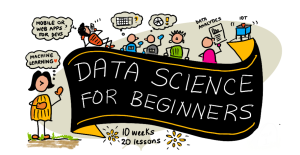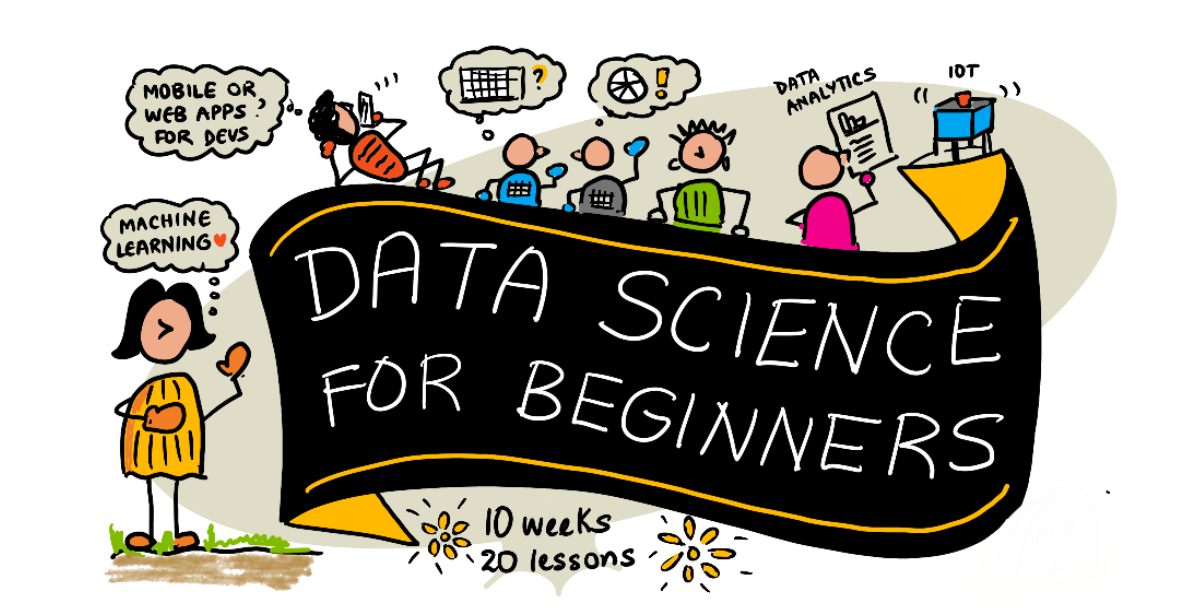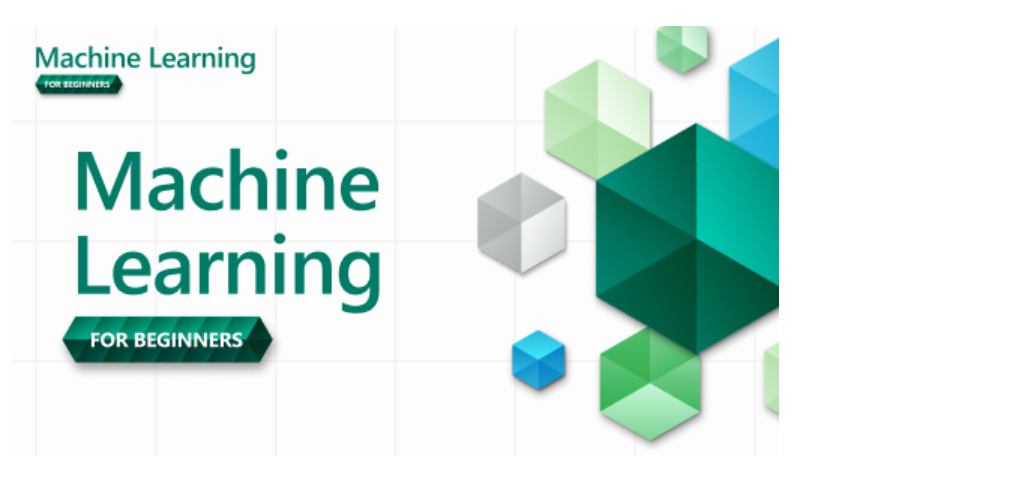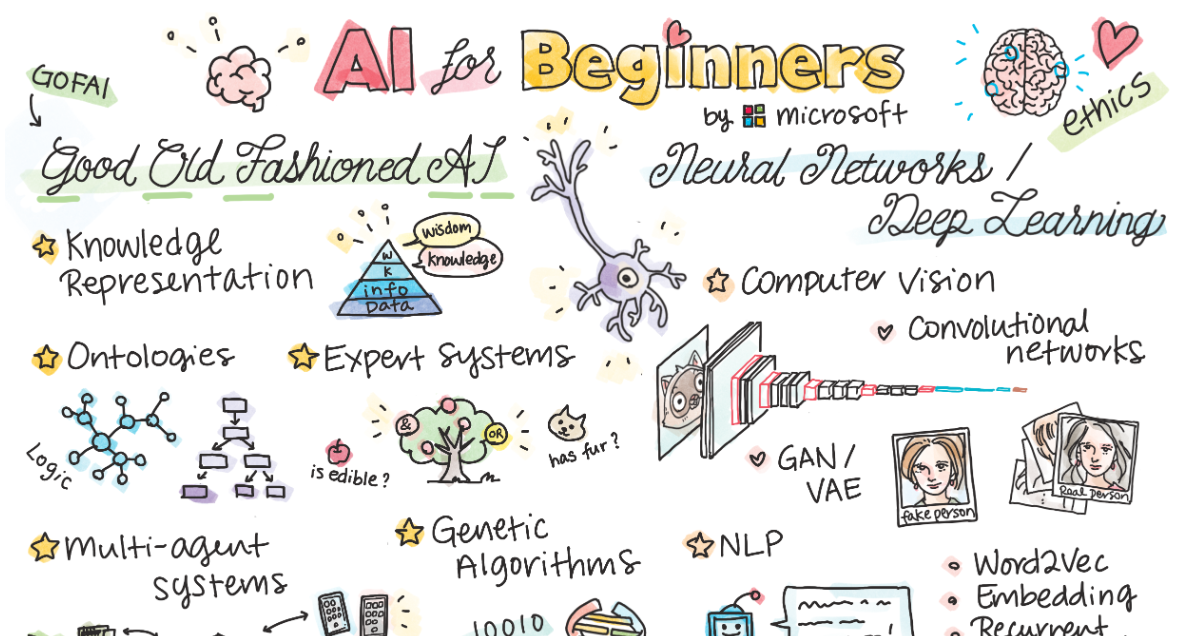
Are you keen on diving into the world of data science, machine learning, or artificial intelligence? Have you been searching for courses that not only teach the fundamentals but are also free and accessible? Look no further! Microsoft has put together three distinct courses that will cater to your interests and ignite your passion for learning.
Data Science for Beginners

This course offers an ideal starting point for those new to data science, focusing on the basics and guiding through practical exercises. The course would help you demystify the complex world of data, allowing you to make informed decisions in various fields such as business, healthcare, and more.
Each lesson in the “Data Science for Beginners” course is meticulously crafted to enhance the learning experience. It starts with an Optional Sketchnote, providing a visual summary, followed by an Optional Supplemental Video to reinforce concepts. Before diving into the lesson, learners can test their understanding with a Pre-Lesson Warmup Quiz. The core of the lesson is the Written Lesson, structured for clarity and engagement. For Project-Based Lessons, step-by-step guides lead learners through the creation of real-world projects. Intermittent Knowledge Checks ensure comprehension, while Challenges offer opportunities for practical application. Supplemental Reading enriches understanding, and Assignments foster skill application. The learning journey concludes with a Post-Lesson Quiz, evaluating the mastery of concepts, ensuring a robust and interactive learning experience.
The following topics are covered as part of the course:
Introduction
- Defining Data Science: Learn the basic concepts behind data science and how it’s related to AI, machine learning, and big data.
- Data Science Ethics: Data Ethics Concepts, Challenges & Frameworks.
- Defining Data: How data is classified and its common sources.
- Introduction to Statistics & Probability: Mathematical techniques of probability and statistics to understand data.
Working With Data
- Working with Relational Data: Introduction to relational data and SQL basics.
- Working with NoSQL Data: Introduction to non-relational data and document databases.
- Working with Python: Basics of using Python for data exploration with libraries like Pandas.
- Data Preparation: Techniques for cleaning and transforming data to handle challenges.
Data Visualization
- Visualizing Quantities: Using Matplotlib to visualize bird data.
- Visualizing Distributions of Data: Observations and trends within an interval.
- Visualizing Proportions: Discrete and grouped percentages.
- Visualizing Relationships: Connections and correlations between data sets and variables.
- Meaningful Visualizations: Techniques for making valuable and effective visualizations.
Data Science Projects Lifecycle
- Introduction to the Data Science Lifecycle: Acquiring and extracting data.
- Analyzing: Techniques to analyze data.
- Communication: Presenting insights for easier understanding by decision makers.
Cloud Data
- Data Science in the Cloud: Introducing data science in the cloud and its benefits.
- Data Science in the Cloud: Training models using Low Code tools.
- Data Science in the Cloud: Deploying models with Azure Machine Learning Studio.
Machine Learning for Beginners

Tailored for newcomers, this course, Machine Learning for Beginners, breaks down machine learning concepts, techniques, and applications. It paves the way for automation and predictive analytics, streamlining operations in various industries like finance, healthcare, and entertainment.
The following are different topics covered in this course:
Introduction
- Introduction to machine learning: Learn the basic concepts behind machine learning.
- The History of machine learning: Learn the history underlying this field.
- Fairness and machine learning: What are the important philosophical issues around fairness that students should consider when building and applying ML models?
- Techniques for machine learning: What techniques do ML researchers use to build ML models?
Regression
- Introduction to regression: Get started with Python and Scikit-learn for regression models.
- North American pumpkin prices: Visualize and clean data in preparation for ML.
- North American pumpkin prices: Build linear and polynomial regression models.
- North American pumpkin prices: Build a logistic regression model.
Web App
- A Web App: Build a web app to use your trained model.
Classification
- Introduction to classification: Clean, prep, and visualize your data; introduction to classification.
- Delicious Asian and Indian cuisines: Introduction to classifiers.
- Delicious Asian and Indian cuisines: More classifiers.
- Delicious Asian and Indian cuisines: Build a recommender web app using your model.
Clustering
- Introduction to clustering: Clean, prep, and visualize your data; Introduction to clustering.
- Exploring Nigerian Musical Tastes: Explore the K-Means clustering method.
Natural Language Processing
- Introduction to natural language processing: Learn the basics about NLP by building a simple bot.
- Common NLP Tasks: Deepen your NLP knowledge by understanding common tasks required when dealing with language structures.
- Translation and sentiment analysis: Translation and sentiment analysis with Jane Austen.
- Romantic hotels of Europe: Sentiment analysis with hotel reviews.
Time Series
- Introduction to time series forecasting: Introduction to time series forecasting.
- World Power Usage – time series forecasting with ARIMA: Time series forecasting with ARIMA.
- World Power Usage – time series forecasting with SVR: Time series forecasting with Support Vector Regressor.
Reinforcement Learning
- Introduction to reinforcement learning: Introduction to reinforcement learning with Q-Learning.
AI for Beginners

This course, AI for Beginners, presents a comprehensive guide for those starting in AI, focusing on core concepts, applications, and ethical considerations. It empowers individuals to harness the power of AI, solving complex problems in sectors like transportation, medicine, and customer service.
The following represents the topics covered as part of this course:
Introduction to AI
- Introduction and History of AI
Symbolic AI
- Knowledge Representation and Expert Systems
Introduction to Neural Networks
- Perceptron
- Multi-Layered Perceptron and Creating our own Framework
- Intro to Frameworks and Overfitting
Computer Vision
- Intro to Computer Vision. OpenCV
- Convolutional Neural Networks
- Pre-trained Networks and Transfer Learning
- Autoencoders and VAEs
- Generative Adversarial Networks
- Object Detection
- Semantic Segmentation. U-Net
Natural Language Processing
- Text Representation. BoW/TF-IDF
- Semantic word embeddings. Word2Vec and GloVe
- Language Modeling. Training your own embeddings
- Recurrent Neural Networks
- Generative Recurrent Networks
- Transformers. BERT
- Named Entity Recognition
- Large Language Models, Prompt Programming and Few-Shot Tasks
Other AI Techniques
- Genetic Algorithms
- Deep Reinforcement Learning
- Multi-Agent Systems
AI Ethics
- AI Ethics and Responsible AI
Summary
- Data Science for Beginners provides a strong foundation in data analysis, making sense of large datasets.
- Machine Learning for Beginners teaches fundamental machine learning concepts, unlocking the potential for predictive analytics.
- AI for Beginners opens up the exciting world of artificial intelligence, focusing on real-world applications and ethical considerations.
These free courses by Microsoft are more than just a learning path; they represent a gateway into the future of AI. Whether you’re a student, professional, or a tech enthusiast, these courses are designed to meet your needs and curiosity.
- The Watermelon Effect: When Green Metrics Lie - January 25, 2026
- Coefficient of Variation in Regression Modelling: Example - November 9, 2025
- Chunking Strategies for RAG with Examples - November 2, 2025

I found it very helpful. However the differences are not too understandable for me